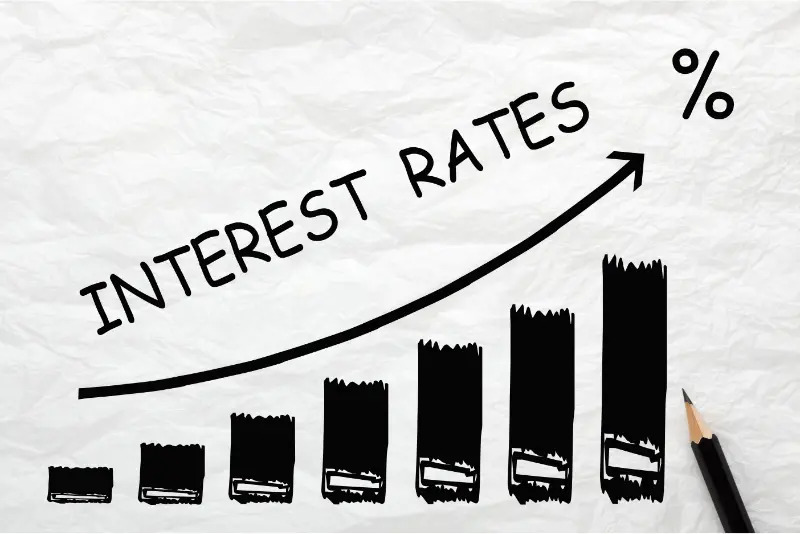

As an investor, determining if now is the right time to invest your hard-earned money in the stock market is one of the most important decisions you can make. With market volatility and uncertainty surrounding global events, you want to ensure you go in with your eyes wide open.
As a leading investment expert in the UK, we’ve done proper research on possible investment options to help you answer the question: “Is now a good time to invest in stock?”. If, after reviewing all points, you determine now is a good time, you can take advantage of available opportunities to secure your financial future. But don’t rush in without a plan — a prudent investor is a successful investor.
Our outlook for the next 6–12 months remains optimistic, with both stocks and bonds expected to generate solid returns. But to navigate a diverse economic scenario, we recommend a diverse investment portfolio with several asset classes. For instance, if growth slows to economic downturns, interest rates are likely to decline, which can potentially increase bond prices.
But unlike property investments, the stock market goes through cycles, and as an investor, timing your entry point is crucial.
There are several factors to consider before investing now, including economic conditions, interest rates, and valuations.
A strong, growing economy typically means companies are thriving and generating higher revenues and profits. This boom often leads to increases in stock prices over the period. Conversely, a slowing economy or recession can negatively impact companies and cause stock prices to decline.
Monitor key economic indicators like GDP (gross domestic product), unemployment, and inflation to determine if the overall economy is in a position to support stock market growth. An ideal time to invest will be when there is a drop in stock price — this way, you can profit from the eventual increase. However, this strategy requires a good knowledge of the market; most investors rely on experts whose fees can be costly.
When interest rates are low, it can be more appealing for investors to put their money in the stock market to achieve higher returns. Low interest rates allow you to borrow money cheaply to invest in stocks. This means you can easily expand your portfolio without the burden of paying hefty interest rates when the stock appreciates.

Monitor what the Bank of England is signalling about potential rate hikes to determine if now could be a good time to invest before rates start to climb. However, if you must borrow to finance a stock investment, make sure you’re investing in a high-yield portfolio to ensure a substantial return. If in doubt, consider mortgaging to invest in property instead of shares — it’s a safer, high-yield option.
The valuations of stocks refer to how expensive or cheap they are relative to a company’s earnings or assets. When stock valuations are high, future returns are usually lower; when valuations are low, the potential for higher future returns increases.
Look at metrics like the price-to-earnings ratio (P/E ratio) of the overall market and for specific companies to determine if stocks are fairly valued or possibly over or undervalued. Overvalued markets suggest less opportunity for strong returns going forward.
So, the big question you’re asking yourself is: should I invest now?
Ultimately, you should invest in stock immediately if the market condition is good and you have the financial capability. However, if you don’t understand the market or aren’t financially buoyant enough to withstand any uncertainty, consider acquiring more knowledge or other investment options like property. We’ll consider how property differs from stock in the next section.
If you can’t currently decide if it is a good time to invest, consider a more stable investment option. Property investments have historically outperformed stocks over the long run (1, 2). While the stock market can be volatile with the potential for high yield in a short period, property values generally appreciate handsomely over time and provide continuous cash flow in rental income. For investors looking to generate steady passive income, property is a more stable asset class to consider.
That said, let’s consider some key differences between property and stock based on diversification, control, cash flow, and long-term appreciation:
Property provides important diversification for an investment portfolio. Rather than being tied solely to stock market performance, property values depend on factors like location, amenities, and demand in the local housing market. Investing in property, especially residential buy-to-let developments, helps reduce overall risk.
Unlike stocks, property investment gives you control over an actual physical asset. You can make improvements to increase the property’s value and attract higher rents. The property also allows for more flexibility in managing costs through maintenance, upgrades and leveraging your investment through refinancing.
With stocks, you have no control over the company’s management or decisions that impact the share price — except, of course, you’re a major shareholder.
Property generates cash flow through rental income, which can provide ongoing returns and income for investors. Rent payments from tenants can be a source of income for retirement or to pay off the mortgage. On the other hand, stock dividends aren’t guaranteed and depend entirely on company performance and board decisions.
Over the long run, property values are likely to appreciate substantially due to factors like inflation, limited land availability, and increasing demand for housing. While stock values can rise over time, there’s more uncertainty and volatility. For patient investors, property is one of the best assets for building wealth through long-term appreciation.
For investors wondering whether now is a good time to buy shares but aren’t certain of the market, property is an attractive alternative. At Baron & Cabot, our team of experts can help guide you through the property investment process to build a portfolio tailored to your needs and financial goals. Contact us now to learn more.
Before deciding if now is a good time to buy stock or property, it’s advised to evaluate your overall financial situation. This will help determine if now is the right time for you to invest and how much you can afford to invest.

Outlined below are 5 valuable tips for making the best financial decisions when it comes to investing.
Review your income sources and monthly expenses to ensure your income exceeds your expenses, with enough left over to invest. If not, look for ways to cut costs or increase your income.
Also, if you’re borrowing money to invest in stock, ensure to pay off any high-interest debts first before investing. Mostly, interest charges on debts often exceed stock market returns. A better alternative is property investment — when you partner with Baron & Cabot, you have access to our pool of trusted lenders to ensure you land the best mortgage deals.
Build up an emergency fund with 3 to 6 months’ worth of essential expenses in case you lose your income source. This provides stability so you can invest for the long term without worrying about short-term market fluctuations or having to withdraw money on short notice. This is particularly important if you’re investing in property.
While property provides continuous cash flow through rental income, you’d want to re-invest these returns in diversifying your portfolio or improving existing ones for higher returns.
Consider your key financial goals, like saving for retirement, a down payment on a house, or your children’s education. Then, calculate how much you need to invest each month to achieve those goals. Investing in the stock market is more suitable for long-term goals at least 5 years away. Short-term money needed within a year or two is better kept in a savings fund.
Decide how involved you want to be in managing your investments. If you prefer a hands-off approach, choose low-cost index funds that track the overall stock market. If you want to be more active in investment decisions, you’ll need to spend time researching companies and stock picking.
In either case, consider consulting a certified financial planner to help develop an investment strategy tailored to your needs and risk tolerance.
Once you’ve prepared financially, start investing a small, regular amount, such as £50–£100 per month. This allows you to gain experience in the market without too much risk. You can then increase the amount over time as you get more comfortable.
Pound-cost averaging, where you invest a fixed amount on a regular schedule, is a simple way to get into the stock market without worrying about market timing. A similar approach in property investment is starting with a 20% downpayment—as with Baron & Cabot investments—and then paying off the rest with a mortgage.
Adhering to these tips will put you in a stable financial position to determine if now is a good time to invest in the UK. While there’s always some risk, approaching the market in a disciplined manner suitable for your needs will serve you well in the long run.
It’s important to evaluate both the potential benefits as well as the inherent risks to understand when to invest in stocks or property. This allows you to make an informed decision about whether the investment aligns with your financial goals and risk tolerance.

Here are the benefits and risks of investing in both property and stock:
Investing in the stock market provides the opportunity for your money to grow significantly over time through capital gains and compounding returns.
Historically, the stock market has returned an average of 7.5% annually, with an edge of about 4.9% over inflation. Considering this data, stocks have the potential to outpace inflation over the long run. While the returns aren’t as encouraging as other investments like property, it’s a decent way to preserve your wealth.
Owning stocks also provides income in the form of dividends. Many established companies share a portion of their profits with stockholders, while dividends provide a steady stream of income as well as the opportunity to increase over time. Diversifying your portfolio across sectors and company sizes can help reduce risk while still capturing the overall growth of the stock market.
While the potential rewards of stock investing are appealing, it also comes with inherent risks. The value of stocks can drop significantly and unpredictably, especially over the short term. Your investments may lose money, and it can take years for a portfolio to recover.
Economic downturns, market crashes, geopolitical events, or company scandals are some factors that can negatively impact stock prices. Smaller companies especially tend to be more volatile, as they’re riskier but also offer potentially higher rewards. But even large companies can suffer major losses, too — earlier in 2023, Silicon Valley Bank’s stocks plummeted by 60% in 24 hours.
The key is to go into stock investing with realistic expectations about volatility and time horizon. As with any investment, there’s always a chance of losing money, so you should only invest money that you can afford to lose. However, for long-term goals like retirement, stocks should be considered as a store of value rather than a market to make huge returns.
Investing in property offers several benefits that make it a more attractive option for most investors, including:
While property investment offers several benefits, it’s important to consider the risks involved, such as:
So, should I buy shares now or property?
It’s important to carefully evaluate your personal financial situation, risk tolerance, and investment goals before deciding between property investment and stock investment. It’ll also benefit you to consult with an investment advisor who can provide personalised advice based on your specific circumstances.
Baron & Cabot is one of the UK’s leading property investment experts, with several years of experience helping investors navigate the markets.
We provide a range of services to support your property investment goals, including:
Now is not a bad time to invest if you understand the risks and have a good strategy to ensure a profitable exit. For more information about our services and how we can help you with property investment, book a meeting with our team.
Yes, but not for a short period. Investing in stocks for the long term, such as 5, 10, or 40 years from now, can be a wise decision. However, it’s important to conduct thorough research and consider your own financial goals and risk tolerance before making any investment decisions.
Yes. This is because your investments will buy more stock units in months when the markets are down. However, while you’ll typically buy less with the same amount when the markets are up, you might make more profits. So, the decision ultimately boils down to how much risk you’re willing to take.
The best place to invest your money right now is in property. This type of investment has historically proven to withstand economic downturns and holds well against inflation. However, choosing the right location is key, and you must consult a property investment expert before making commitments.
As you’ve seen, whether now is a good time to invest in stocks depends on your unique financial situation and tolerance for risk. While market timing can be tempting, a long-term investment strategy based on your financial goals is the soundest approach.
Alternatively, you can consider a more savvy investment option — property investment. While there are associated risks, property investment offers long-term capital growth and continuous cash flow in the form of rental income. Of course, this heavily relies on the amount of research you do before investing in property — at Baron & Cabot, we’ve done our due diligence and can help you get started with property investment immediately.
Contact us today to get started!
Disclaimer: Any information provided by Baron & Cabot does not constitute financial advice and is for educational purposes only.